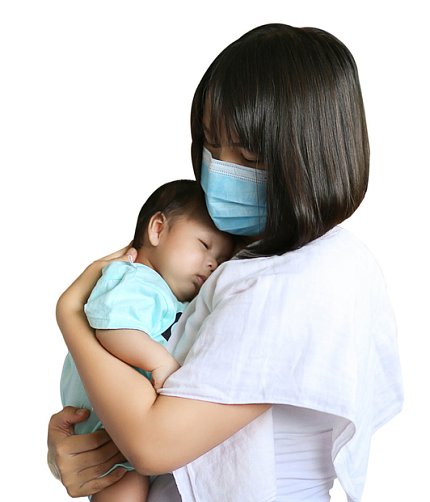SARS-CoV-2 May Cause Fetal Inflammation

Photo: Shutterstock/ Titikul_B
A small NICHD-led study showed that a SARS-CoV-2 infection during pregnancy may cause inflammatory immune responses in the fetus, even if the virus does not infect the placenta.
Researchers describe unique maternal, fetal and placental immune responses among pregnant women with Covid-19. The findings detail changes in antibodies, immune cell types and inflammatory markers in maternal blood, umbilical cord blood and placental tissues. The study is published in Nature Communications.
Women who are pregnant are at a higher risk for severe illness from Covid-19. The virus during pregnancy also increases the risk for preterm birth, stillbirth and preeclampsia.
The study evaluated 23 pregnant women: 12 were positive for SARS-CoV-2. Of them, 8 were asymptomatic, 1 had mild symptoms and 3 had severe Covid-19. After delivery, the researchers compared immune responses between mothers and their newborns by comparing maternal blood and umbilical cord blood. Inflammatory immune responses triggered by the virus were observed in women, their neonates and placental tissues regardless of whether the mothers had symptoms. The study team described the following observations:
- Pregnant women with SARS-CoV-2 had a reduction in an immune cell type called T-cells, which helps drive antiviral responses.
- Mothers with SARS-CoV-2 infection developed antibodies against the virus regardless of whether they had symptoms, and some of these antibodies were found in the umbilical cord blood.
- Infected mothers had a higher level of immune activity markers (i.e., cytokines) in blood regardless of symptoms. The elevated cytokines are interleukin-8, interleukin-15 and interleukin-10.
- Infants born to infected mothers, even if the mother had no symptoms, had an inflammatory response reflected by higher levels of interleukin-8. This elevation was observed even though the fetus presumably did not have Covid-19.
- While SARS-CoV-2 virus was absent in placentas, the placentas from infected mothers had altered ratios of immune cell types. The researchers also found altered immune activity in the placenta and cord blood of infants born to infected mothers. These findings indicate that the neonatal immune system is affected by maternal infection by SARS-CoV-2 even if the virus is not detected in the placenta.
Overall, the findings will help researchers better understand Covid-19 during pregnancy.
